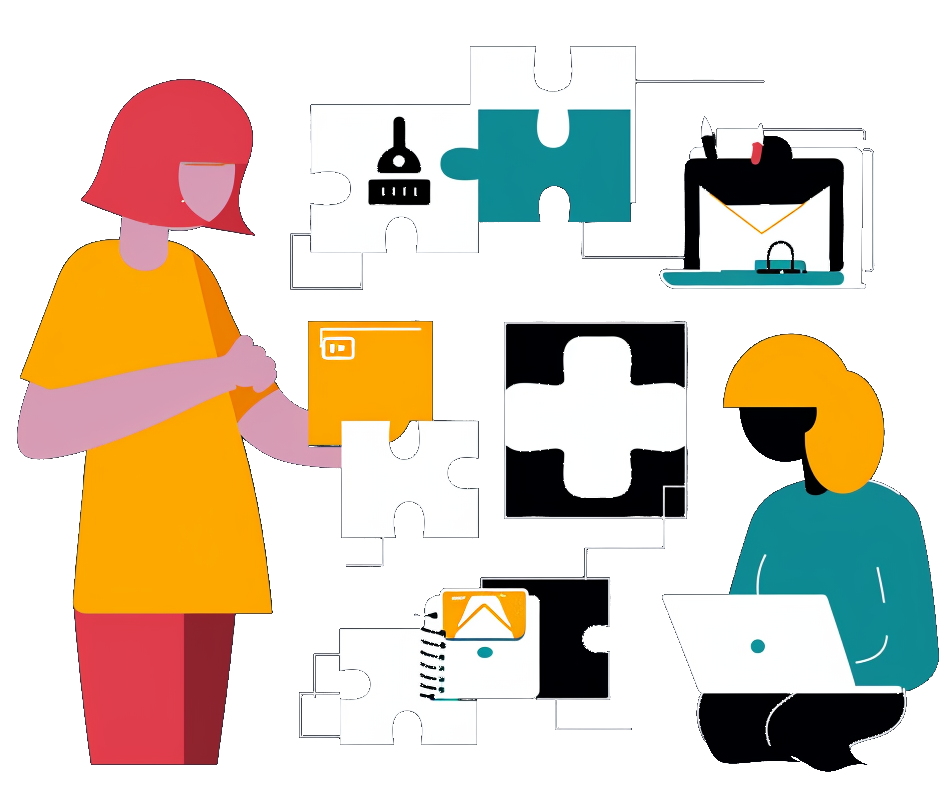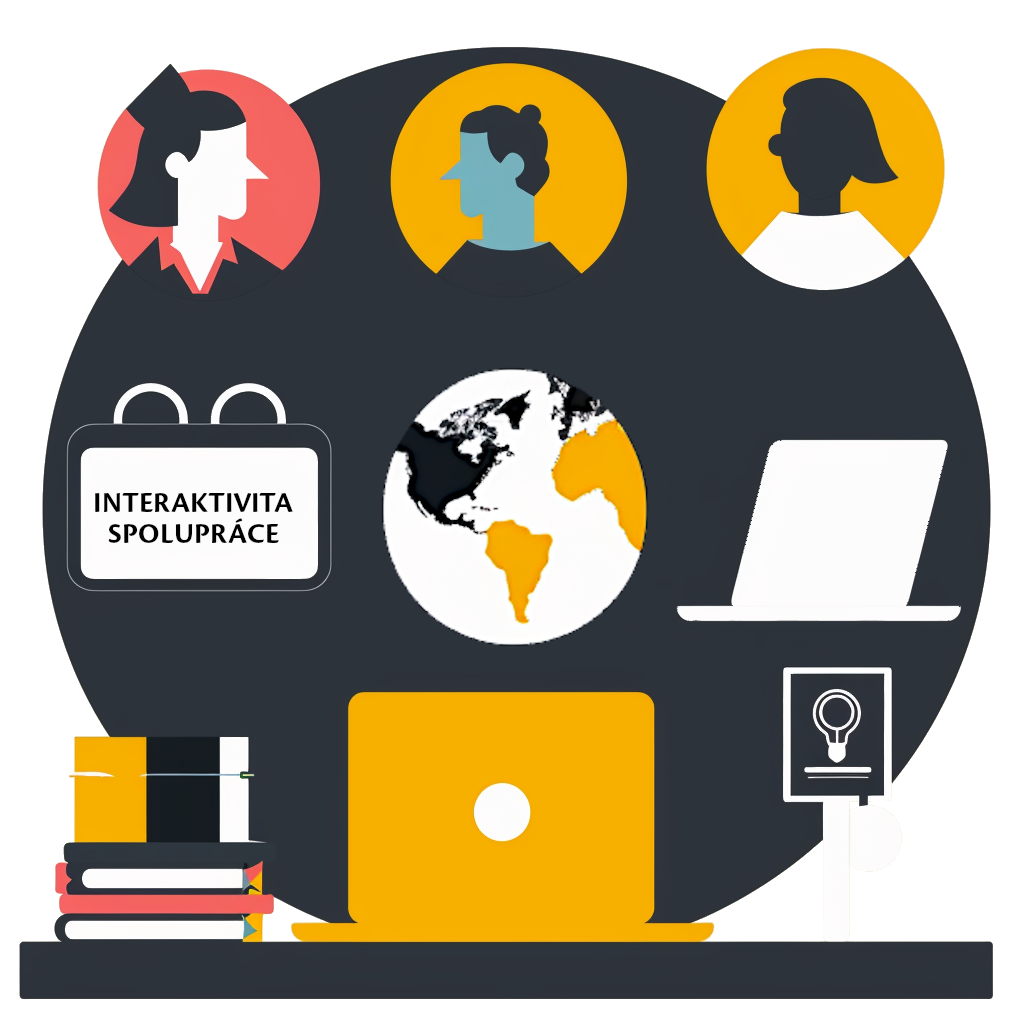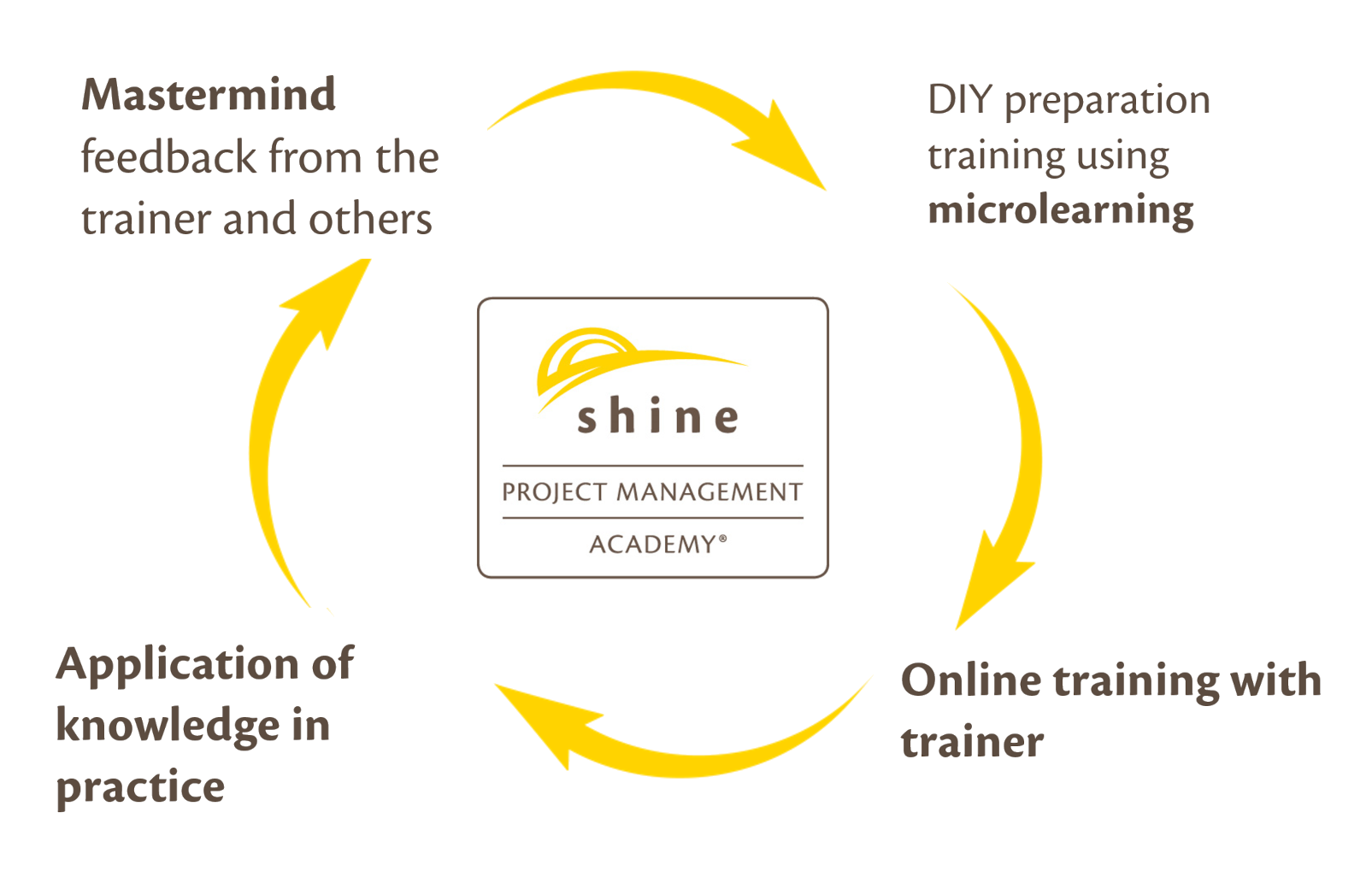This article is time-lapse. The first version was published in March 2021. However, it is continuously updated with new experiences and insights.
I'll start with a personal story. Thanks to online, I walked 317 km in six weeks. How did I do it? I decided that everything that could be done online, I would do online. And the results really surprised me. On average, I now save 90 minutes a day on once low-productivity travel and another 90 minutes a day thanks to digital project skills, artificial intelligence and automation. Most importantly, I've avoided the impending loss of productivity compared to people who are also improving rapidly.
2x 90 minutes saved per day = 15 hours per week = 100 working days per year
But beware, increased productivity doesn't just apply to individuals. In fact, project management has gone digital. We've found quite conclusively at SHINE that if you have the conditions in place, you can learn more things online than in person.
Why is online more productive in project management?
The single most important reason why online is more productive for project management is the gradual learning from each other ("social learning"). Online is much better at implementing a model where training sessions take place as a series of short sessions rather than as a day-long one-off event. For us, the format of lessons in 2 x 90 minutes has worked best in SHINE. Similar to a school, there are about 1-3 lessons per week. In between you practice everything in practice.
This is how the cycle is repeated:
When we at SHINE gradually moved to an online academy format with shorter blocks, we found that something amazing happened. Participants became a class and the sharing between them improved dramatically. Something that rarely happens in one-off face-to-face courses. People share better, help each other, common experiences and even emotions arise. In addition, there is the social pressure of the group at work. It's just silly not to do your homework. And naturally, a healthy competitiveness sets in.
Here is an overview of the other advantages of online versus in-person:
1. Technological advantages
 Project management happens digitally.
Project management happens digitally.
- Project planning, resource allocation, reporting, information sharing - it's all done digitally. If the training is also done online, participants learn processes straight away that they can use in practice.
- Transitioning to mode where AI takes over many activities.
- Project support (training, hotlines, mentoring, help with mastering software applications) can be reliably handled by AI. A live human is also involved in the activities, but AI is helping them significantly.
- The ability to immediately engage elements of AI.
- Already making online learning more productive with AI. So a project manager can have his AI assistant and AI chatbot. The AI chatbot can already speak with a voice in a quality indistinguishable from a live human.
- During online training, you will automatically improve your digital skills.
- Planning and project management can be done excellently online (everyone is online) or hybrid (part of the team is online and part of the team is in person). But this skill needs to be learned.
2. Flexibility & Accessibility
 Smaller blocks make it easier to put together "tailor-made" development programmes.
Smaller blocks make it easier to put together "tailor-made" development programmes.
- You don't have to spend time on lessons that are simply included in longer courses and cannot be easily discarded. You only learn what you actually need to learn.
- You work and learn from anywhere.
- You and everyone else can participate in the work together, and no one is left out just because they live somewhere far away. Or travelling.
- Nobody misses the project meetings or the lessons.
- In these times of change, it is not easy to find a time when everyone can be in one place. The consequence is that someone is almost always missing. Full participation is much easier to achieve online.
- Training in shorter blocks saves you time. You can also deal with the problem of time zones.
- You won't lose a whole day of work, you'll put your new skills into practice faster. You get into the habit of always learning new things. You can better organize your day while working from anywhere.
- Virtual moves to groups (breakout rooms) are much faster than flipcharts.
- This leads to longer practice during training. You can simply complete more training blocks in less time. And that's the same as driving school. More practice = more skills.
- If you're ever absent, you can play a recording.
- Individual lessons can be easily recorded. You can recall them or make up a missed lesson. You won't be able to watch the whole day, but a 90-minute recording is not a problem.
- Easier inclusion of people with disabilities.
- Some people who would not be able to participate for health reasons or with social handicaps can participate much more easily. People who care for other people and for whom commuting would be a problem can also get involved.
- Other languages are not a problem.
- Artificial intelligence can significantly reduce the language barrier (automatic online subtitles, transcription of words into texts). Simultaneous online voice translation will soon be available.
- If you're not comfortable online, you just disconnect.
- This is probably not possible in a full-time course. You have already invested once in transport to the place and so you will "suffer" the whole day there. Even with a boring lecturer and annoying people. The magic MUTE button is a great solution.
3. Interactivity and collaboration
 You can quickly gain experience of people from other companies, cultures, countries.
You can quickly gain experience of people from other companies, cultures, countries.
- Our planet has never been smaller. So you can choose the best teacher on the planet. Not the one who lives within driving distance. I usually meet people from Australia, South Africa, USA, Chile.
- The training group can be larger while maintaining the quality.
- Online, it can easily handle 20 (and more with multiple tutors) people at a time. I have personally taken an amazing international course where there were almost 100 of us. There can be several lecturers and specialists can join for short periods of time.
- Shared virtual desktop creates a visual record and shared experience.
- Thanks to the shared area, the co-creation effect occurs. Online enrolment is also continuously created and the project plan is refined. It is not necessary to rewrite it from the flipchart after the training.
- Better connection to practice.
- Online, people can share their examples much more easily. You always have more experienced and less experienced people on the course. The more experienced ones can show their examples.
- Play School - High-quality online learning that doesn't bore, but entertains.
- KAny good online training is highly interactive. The possibilities are many: videos, quizzes, sharing apps, and collaboration on shared desktops. Everything is available instantly, online and long term, even after the training.
4. Developing and supporting learning
 People actually train the way they're supposed to.
People actually train the way they're supposed to.
- In an online environment, it's much easier to pre-prepare all the patterns, examples for people. Thanks to this, the participants follow the instructions exactly. This can only be achieved with increased effort when working on flipcharts.
- Protect your health and the health of those around you.
- The health risk is completely eliminated. Even people who are slightly ill can join in if they feel up to it. And that goes for you too.
- Access to extensive online resources and tools.
- Online provides easy access to digital resources. Access to these resources can be incorporated directly into courses and many resources are even available for free.
- Immediate feedback.
- Online you have much easier feedback with polls, quizzes, and tests with automated assessments. Instant feedback helps in the learning process and in improvement.
- Promoting lifelong learning.
- Online learning facilitates access to continuous learning and skills development at every age and career stage.
5. Efficiency and economy
 Save valuable time by not having to travel to and from the course location.
Save valuable time by not having to travel to and from the course location.
- You can do something else in the time you save.The only question is, what will it be, right?
- Additional costs are saved and you save the environment.
- No need to use papers, flipcharts, post-it cards. It also saves on other costs (classrooms, refreshments, transport, accommodation).
You'd probably find other benefits online. The list is not exhaustive.
Project collaboration and learning are more productive online
PMI® Pulse of the Profession® 2024 , an extensive research study, has recently been published . You will find a very clear conclusion, supported by relevant data, that if you create the conditions for online collaboration on projects, you will reliably increase the productivity of your project team.
A statement I sometimes hear:" We don't want online. Our online people are doing something else and are not focused at all" is completely wrong. Maybe you just have bad habits, or you are permanently overloaded and don't have time to learn, or you don't know how to do it online yet because you haven't come across someone who has shown you how.
If you're on a proper, well-run online course that really addresses what you need, and if you've created the basic conditions for learning (stable internet connection, sound, camera on, undisturbed location, notifications turned off on computer and mobile), you'll simply learn more online.
Conclusion
With online, where you can easily master new digital technologies and AI, you can increase your productivity by up to 30%, which means 100 extra working days a year. You can use this time to further your development or meet people outside of work. I, for example, turned it into 317 kilometres. Many still claim that the present form is better, like the courtiers in the Emperor's new clothes. But the truth is clear: purely face-to-face courses and workshops in project management are a thing of the past.

Other sources:
- I recommend the Be in the know - orientation in SHINE solutions page.
- If you want to experience what online project management training can look like, I recommend our webinars (currently scheduled are always posted on the homepage www.shine.cz).
-
Author: Josef Hajkr, SHINE Consulting

